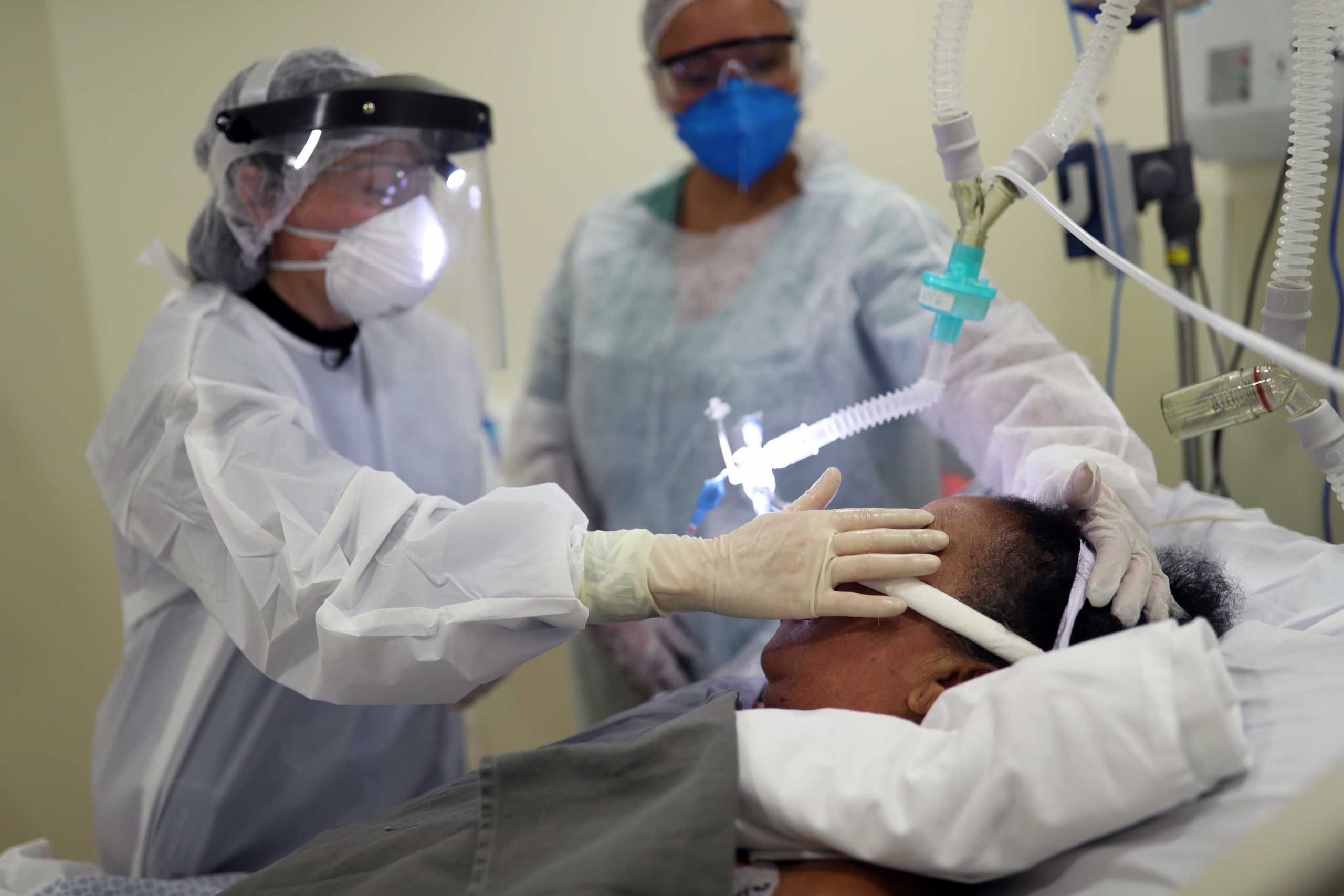A new test could show whether some people are at risk of getting seriously ill and being admitted to hospital with complications coronavirus. The presence of specific autoantibodies in the blood of patients treated with Covid-19 is closely linked to the risk of developing serious illness, according to a new US scientific study.
Autoantibodies in the body are proteins that, instead of defending themselves against bacteria and viruses, attack the patient’s own cells and molecules. The new coronavirus test could help predict which people, when admitted to hospital, are more likely to have severe Covid-19 and intubation.
At the same time it could show in advance which patient with Covid-19, before reaching the point of admission to hospital, needs closer monitoring, because he is more at risk of deteriorating health in a few days. Although such an autoantibody test marker only “catches” a percentage of those who eventually become seriously ill, nevertheless, according to scientists, it would be a useful help.
Researchers from New York University School of Medicine and Langone Health Medical Center, including Kimon Argyropoulos, of Greek descent, studied 115 Covid-19 patients in hospital (half with severe Covid-19 and the other half with published in the journal Life Science Alliance, detected autoantibodies in more than a third (36%) of patients.
Particularly a type of autoantibody that binds to DNA or certain lipids in the body, is often almost double (increased by 86% and 93% respectively) at the beginning of coronavirus infection in those whose health deteriorates rapidly, relative to with those who are less seriously ill.
Patients with elevated autoantibody levels are five to seven times more likely to develop severe Covid-19 than those who do not have elevated autoantibodies after coronavirus infection. The former are more at risk of needing ICU and intubation, while the latter can breathe on their own and recover faster.
“Although further research is needed, our findings already show that a test to detect antibodies to DNA and a lipid (phosphatidyIserine) can help identify those Covid-19 patients who are admitted to hospital and who are at higher risk. “They need an intensive care unit and closer monitoring,” said researcher Dr. Marizol Zuniga.
At the same time, elevated levels of autoantibodies are associated with an increased risk of blood clots and muscle tissue damage due to cell death, especially heart disease, complications that have been observed in the most severe cases of Covid-19.
“Our observations show that in severe cases of Covid-19 the production of autoimmune antibodies plays a key role in blood clotting and cell death. “Our study confirms that in this disease, the wrong reaction of the immune system does more damage than the coronavirus infection itself,” said Anne Rodriguez, a professor at the Department of Microbiology.
As he said, further experiments will be needed to determine whether autoantibodies are indeed the cause or consequence of thrombosis and cell death. If auto-antibodies are indeed confirmed, then new therapies will be sought, including injections of antibodies from healthy donors, to reduce the level of self-destructive autoantibodies. Alternatively, biodegradable antigens that bind to and neutralize autoimmune antibodies may be tested.
READ ALSO
